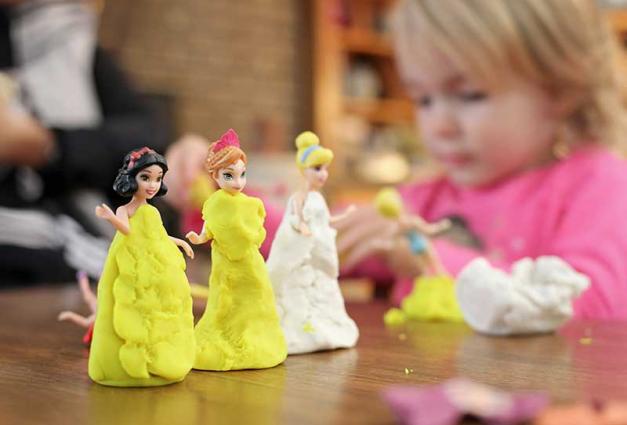In personality psychology, we are interested not only in the question of what makes people people, but also how they become that way. As such, there is a focus on the development of people across time. In our case, the question was how self-esteem and one’s overall satisfaction with their social relationships might be connected, especially as they might change and predict each other over time.
If self-esteem and satisfaction with social relationships are connected, we want to know why. For this purpose, it is important that we tease out the directionality of the association between self-esteem and satisfaction with social relationships: does self-esteem predict change in satisfaction with social relationships, or does satisfaction with social relationships predict development in self-esteem? This question may be important if we want to help people who are having self-esteem problems. We need to know whether having better-quality relationships predicts feeling good about yourself, or whether it is really the case that having high self-esteem predicts being more satisfied with their relationships. In the former case, it would make sense to target people’s relationships as a way of increasing self-esteem—in the latter case, not so much.
Unfortunately, teasing out the directionality of an association is difficult. This chicken-egg problem is made even more complicated because the answers one gets depend on over what time span we ask people in our research to report on their self-esteem and satisfaction with social relationships—only one day apart? or one month, or ten years?
Understanding when an effect is larger or smaller is also important because it can give us clues about the process or mechanism underlying the association. For instance, knowing that the process is rather immediate—self-esteem predicts satisfaction with social relationships most strongly almost immediately after—may point to processes that are rather fast and perhaps more reflexive than when the process is more long-term—for example, if self-esteem predicts satisfaction with social relationships after several months. In addition, knowing when an association is stronger may also have practical value: we know exactly how far apart we need to ask people to fill out our questionnaires rather than have them fill out questionnaires as often as possible. This is not only a benefit for researchers in terms of the resources spent, but also for the participants in terms of the burden of participating in the study.
In our study, we explicitly looked at the length of the time that passes between assessments of self-esteem and satisfaction with social relationships as one possible way to reconcile inconsistent findings from previous studies. Ours was a large, nationally representative group of adults from the Netherlands with ten years of data (2008 – 2017). This group consisted of 14,741 individuals across the entire ten-year period, with a wide age range and approximately equal gender representation. Assessments of self-esteem and one’s overall satisfaction with their social relationships were yearly but, each year, the exact number of months between measuring self-esteem and measuring satisfaction varied. To look at how the length of time between measurements impacted the association between self-esteem and satisfaction with social relationships, we used a technique called Continuous Time Modeling. This method allowed us to ask, for example, does self-esteem predict satisfaction with social relationships if we look at these variables from one day to the next? And across several months? How about when we look across several years? The novel feature of this method is that we could estimate the effects for time gaps that were longer or shorter than actually measured.
We got answers both to the chicken-egg question and the question about the role of time. Firstly, rather than one predicting the other, self-esteem and satisfaction with social relationships both predicted each other. Therefore, people having high self-esteem were also the ones saying that they were more satisfied with their relationships at a later timepoint, and vice versa. Additionally, having satisfying relationships was a more potent predictor of changes in self-esteem than the reverse. With regards to the association across different time intervals between the assessment of self-esteem and satisfaction with social relationships, we found that these associations were especially strong when satisfaction with social relationships and self-esteem were measured 1 to 1.5 years apart.
Thus, it might take some time before changes in how we feel about ourselves show up in how satisfied we are on the whole about our relationships, and before changes in the satisfaction with our relationships show up in how we feel about ourselves. Thus, our study provides important hints that the underlying processes linking self-esteem and satisfaction with social relationships may be relatively slow. In the case of self-esteem, experiencing an increase in how good you feel about yourself may trigger an increase in social activities (such as going out more, calling friends more often) and also in the quality of those activities (such as increasing the intimacy by engaging in deep conversations). Over a period of several months, this may result in improved relationships, which may in time be picked up in individuals’ evaluation of those relationships. Conversely, experiencing an increase in the satisfaction with one’s social relationships may signal to individuals that they are a meaningful member of a social group or a couple. Because self-esteem is a more stable personality trait, it may take some time for individuals to adjust their self-esteem accordingly.
Therefore, it is important to keep in mind that Rome wasn’t built in a day—and neither are strong relationships or good self-esteem. Investing in oneself or one’s relationships may pay off in other domains of life, but this doesn’t happen overnight. At the same time, our findings also showed that the association between self-esteem and relationship satisfaction is rather modest. This means that although higher self-esteem and relationship satisfaction are associated, increasing one’s self-esteem is not a miracle fix for one’s relationships or the other way around. Instead, other variables such as one’s personality might play a more important role.
For Further Reading
de Moor, E. L., Denissen, J. J. A., Emons, W. H. M., Bleidorn, W., Luhmann, M., Orth, U., & Chung, J. M. (2021). Self-esteem and satisfaction with social relationships across time. Journal of Personality and Social Psychology, 120, 173–191. https://doi.org/10.1037/pspp0000379
Harris, M. A., & Orth, U. (2020). The link between self-esteem and social relationships: A meta-analysis of longitudinal studies. Journal of Personality and Social Psychology, 119(6), 1459-1477. http://dx.doi.org/10.1037/pspp0000265
Lisanne de Moor is a PhD candidate at Utrecht University in the Netherlands. She is interested in personality, identity, and complex statistical methods.
Joanne M. Chung is an assistant professor at the Department of Psychology at the University of Toronto, Mississauga in Canada. In her research, she uses multiple methods to examine the relations among culture, emotions, and personality development in young adulthood.




